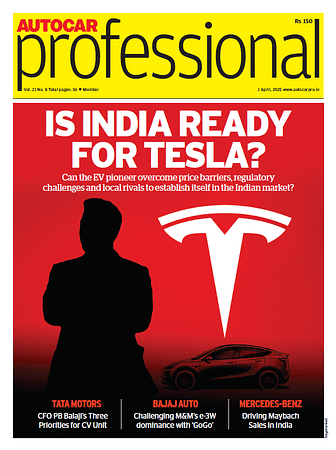EU Seeks Elimination of Car Import Tariffs in Trade Talks With India: Reuters
Reuters notes that the EU is seeking zero tariffs on cars, particularly for vehicles that meet specific investment or environmental criteria.
The European Union is pressing India to completely remove import tariffs on cars as part of broader trade discussions, with negotiations gaining momentum after similar demands from the United States, as per a Reuters report. According to multiple sources familiar with the talks, India is considering a proposal to gradually lower these tariffs to 10%, despite strong opposition from local automakers.
Currently, India levies some of the world’s highest import duties on automobiles, with tariffs exceeding 100%. While Indian authorities have shown willingness to ease these rates, domestic car manufacturers are advocating for a minimum duty of 30%, particularly to protect investments in the emerging electric vehicle (EV) sector.
One Indian government source told Reuters, “Talks are ongoing with both the EU and the U.S. There’s growing momentum now, and India could consider deeper cuts, though the auto sector is lobbying hard to maintain higher rates.”
In its trade discussions with the EU, India initially offered to reduce import tariffs on a limited number of petrol-powered cars to 30% in a phased manner. However, New Delhi is under increasing pressure to improve this offer, which the EU sees as insufficient. India’s revised position could include further tariff reductions, but no final decision has been taken yet.
Reuters notes that the EU is seeking zero tariffs on cars, particularly for vehicles that meet specific investment or environmental criteria. The request is part of the larger India-EU Free Trade Agreement negotiations, which both sides hope to conclude by the end of this year.
European automakers, including BMW, Mercedes-Benz, and Volkswagen, would significantly benefit from reduced duties. Tesla, too, could gain from the changes, as it plans to export EVs from its Berlin factory to India in 2025.
India’s commerce ministry has already briefed the heavy industries ministry and top automakers on the EU’s position. However, local players such as Tata Motors and Mahindra & Mahindra are resisting the proposal, particularly the inclusion of EVs in any tariff reductions.
According to Reuters, Indian carmakers have suggested maintaining high tariffs on EVs until at least 2029, and have proposed a gradual reduction on petrol vehicles to 30%, starting with small volumes subject to a 70% duty. This approach, they argue, would protect domestic production while allowing room for limited imports.
Reuters also notes that both sides are feeling pressure to advance the agreement amid growing global trade uncertainties and rising geopolitical tensions. António Costa, President of the European Council, recently emphasized the importance of "decisively advancing" EU-India trade talks during an address in Brussels.
Despite the pushback from Indian manufacturers, Reuters sources indicated that the government may revise its offer to the EU, signaling a potential breakthrough as negotiations enter a more intense phase.
RELATED ARTICLES
Most Accessible 7 Seat Cars, SUVs in India
On a strict budget and need to seat seven? Here are the 10 most affordable SUV and MPV models currently available.
FY2025 Luxury Car Sales: Mercedes on Top, E-Class LWB Takes Bestseller Title
Jaguar Land Rover and Lexus India have also recorded strong year-on-year retail sales growth.
New BMW 2 Series Gran Coupe India Launch by Mid-2025
The new sportier 2 Series Gran Coupé is likely to be powered by a downsized 1.5 petrol.






 By Autocar Professional Bureau
By Autocar Professional Bureau
 07 Apr 2025
07 Apr 2025
 1819 Views
1819 Views









